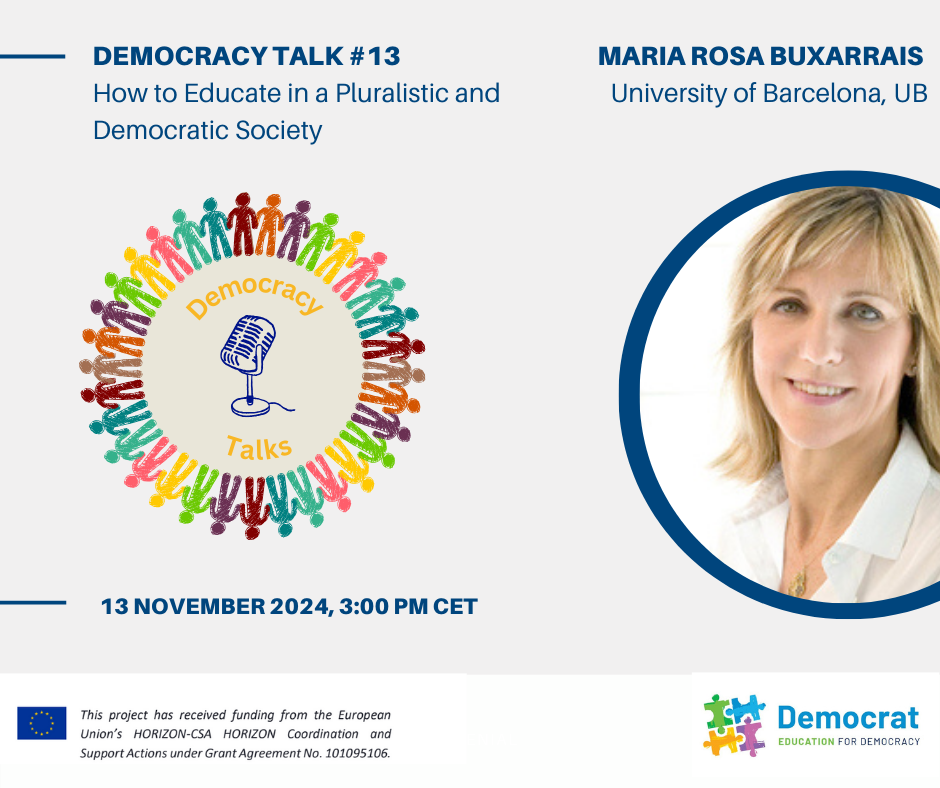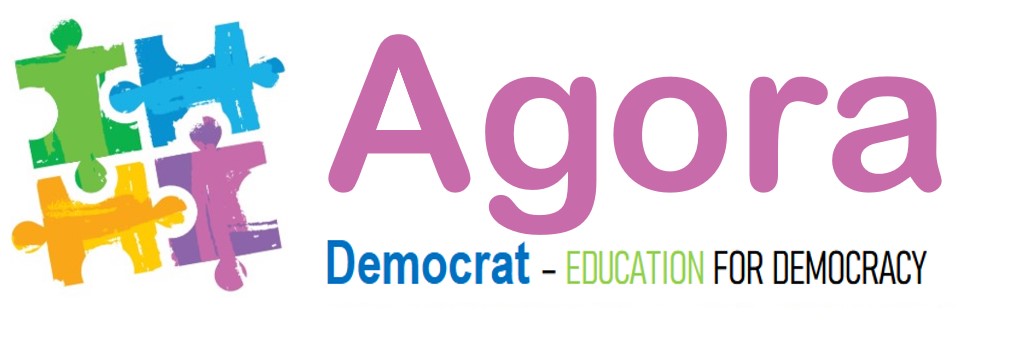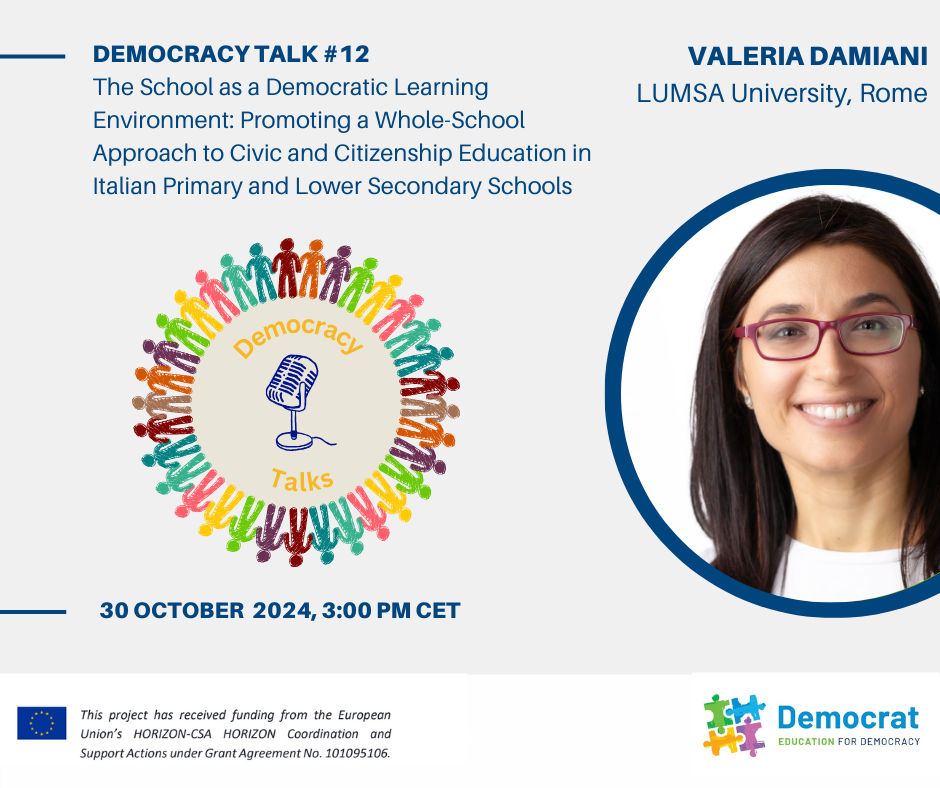On October 30th, we had the pleasure of hosting Valeria Damiani from LUMSA University in Rome for our 12th Democracy Talk. Valeria shared her expertise on “The School as a Democratic Learning Environment: Promoting a Whole-School Approach to Civic and Citizenship Education in Italian Primary and Lower Secondary Schools.” I’d like to take a moment to reflect on Valeria’s insightful session and highlight some key themes that resonate with the goals of civic education.
As part of our ongoing series, this talk brought in Diana Trevino, Project Officer at the European University Continuing Education Network, who introduced Valeria. Valeria, an expert in democratic education and principal investigator for the Prin 2022 project, shared valuable insights into her team’s work on fostering democratic learning environments in Italian schools, emphasizing the ‘whole-school approach.’
In her presentation, Valeria outlined findings from her project, funded by Italy’s Ministry of Education. She discussed the challenges and opportunities for democratic learning in Italian schools, such as a gap between national civic education guidelines and school-level practices, often hindered by inconsistent reforms and a lack of dedicated support for democratic initiatives in classrooms.
Key Themes Explored
Inclusivity in Democratic School Culture
Valeria stressed that schools can function as democratic learning environments where students experience citizenship through active participation in school decisions, management, and community involvement. She noted that the whole-school approach emphasizes inclusivity, allowing students to engage meaningfully and feel their voices are heard. Valeria highlighted that such participation, while familiar in upper secondary levels, is often absent in lower levels, creating a missed opportunity for fostering democratic values from an early age.
Teaching as Democratic Practice
Valeria shared that democratic learning also involves adopting inclusive teaching methods, where students actively engage with the learning process. Techniques such as formative assessments, peer feedback, and shared goal-setting were cited as ways to incorporate democratic principles into teaching. In this way, students gain practical experience in democracy, fostering a sense of responsibility and citizenship.
Promoting Active Citizenship Beyond School
The project encourages students to act within their local communities, aligning with one of the three pillars of the whole-school approach. This model connects classroom learning to real-world applications, creating a bridge between theoretical knowledge and active citizenship.
Questions for Reflection
To deepen your engagement with these themes, consider the following:
- How can schools, particularly in early education, incorporate democratic practices to prepare students for active citizenship?
- What strategies could bridge the gap between national policies and school-level civic education practices?
- How might teachers collaborate to create democratic learning environments within the constraints of traditional subject structures?
For those who couldn’t join, the full recording of Valeria’s talk is available on our YouTube channel. We thank Valeria and all participants for this enriching discussion, which has provided valuable insights into advancing democratic education in schools.
Today is our 13th talk with Maria Rosa Buxarrais of the University of Barcelona. Maria will discuss “How to Educate in a Pluralistic and Democratic Society” in the context of higher education. The talk begins at 3 PM CET.

In two weeks we will also have our talk with Hilmi Tekoglu of SOLIDAR Foundation who will speak on Promoting democratic participation and engagement – the AKA project. You can add it to your calendar here

This project has received funding from the European Union’s HORIZON-RIA HORIZON Research and Innovation Actions under Grant Agreement No. 101095106. Views and opinions expressed are those of the author(s) only and do not necessarily reflect those of the European Research Executive Agency. Neither the European Union nor the granting authority can be held responsible for them.


Leave a Reply